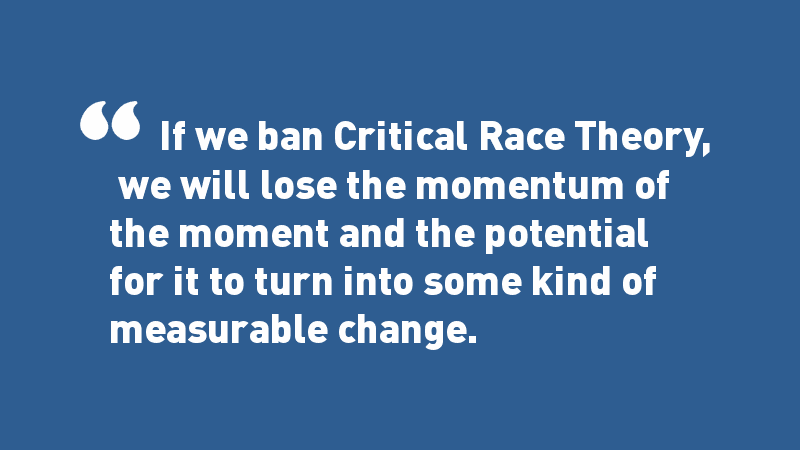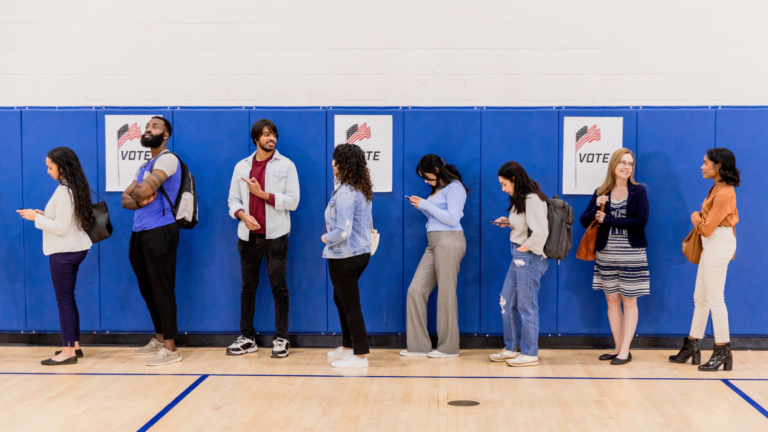There’s always been pushback about what gets taught in schools (looking at you, evolution), and legislators are always more than willing to weigh in. Most recently, the topic in question has been critical race theory. Just this week, the Tennessee General Assembly voted to ban the teaching of Critical Race Theory. The government can now withhold funding from schools that teach about racism and its history in the United States. And this is just a small snapshot of what is happening at the national level. Idaho is already on board, and Texas is expected to follow suit. It’s a move decidedly in the wrong direction.
What is Critical Race Theory?
CRT examines how America’s unique brand of racism has shaped the legal, economic, and societal structures of our country. At the core of CRT is the idea that race is not a biological fact but a social concept that has shaped laws that uphold a system of racial injustice. Many of these laws have changed over time, but the structures that allowed them to be law have not. Those structures are upheld by the conscious and unconscious biases that allow race to continue to be a determining factor in almost every aspect of American life, from housing to healthcare, from education to employment, and everything in between. Critical Race Theory explores how the effects of racism have shape-shifted to maintain the racial hierarchy that has so long held America back from being a truly just nation.
What could we lose if we ban CRT?
America is in the midst of a racial reckoning, one unlike any we have seen in recent memory. There is momentum among younger generations to learn about the through-line of race in America. Their goal is to own their privileges on one end of the spectrum and to challenge the barriers they face on the other end. The purpose of knowledge is not just to feel—it is to act. When you know better, you do better, even if you feel worse at first.
Younger people are waking up to the ways that systemic racism harms not only Black people, but white people as well. This bill is a threat to the opportunity we have to educate all children about how race has shaped this country and how we can work to undo the harm that racism has caused. If we ban CRT, we will lose the momentum of the moment and the potential for it to turn into some kind of measurable change.
How can school leaders and teachers navigate this?
Provide resources for families to educate their children. This type of education is empty if it’s not being reinforced at home. There will always be families that resist doing the work, but have resources from places like Learning for Justice available for families and students who are interested.
Offer professional development for staff. All of us, despite our backgrounds and how we identify, have some kind of bias against marginalized groups. Consider bringing in a trained specialist to raise awareness of implicit bias among staff members. Training should include actionable steps for continued growth to help staff members prevent biased attitudes from negatively impacting students.
Leverage your teaching strategies. Great teachers create space for students to come to their own conclusions. One of my favorite ways to do this is by using high-order thinking questions paired with the Socratic method. Micro Labs are similar to Socratic seminars but in smaller, safer groups (and they work great in breakout rooms). Have students craft their own research questions and use evidence to support their conclusions. Ask questions that give students topics to explore without leading them to a conclusion:
- How did slavery impact the founding of the American economy and financial system?
- Which people have the American democratic process historically left out, and how has that affected current power structures?
For now, giving students space to think isn’t illegal, so take advantage while you can.
For more content like this, be sure to subscribe to our newsletter!
Plus, How to Speak Up and Take Action When Your School Isn’t Anti-Racist.


